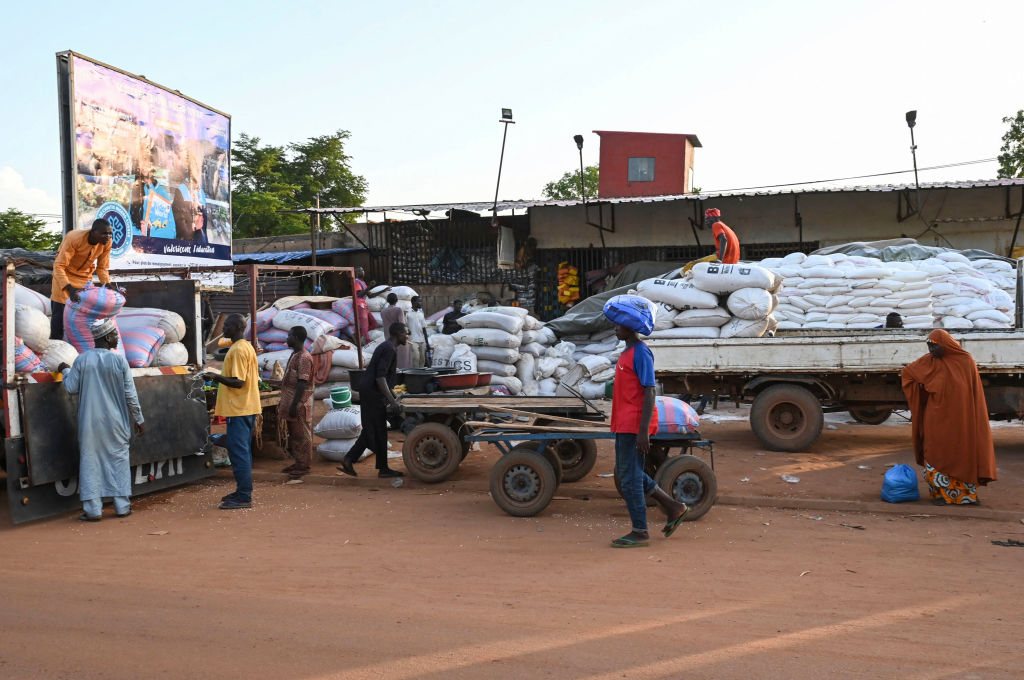ADF STAFF
The recent military coup in Niger has not made life easier for Nigeriens or people in the wider region.
Economic sanctions closed the bustling border between Niger and Nigeria, halting roughly $1.3 billion worth of annual trade. Food prices have risen sharply in Niger’s capital, Niamey.
“Frankly, I’ve felt it in my pocket. And right now, where we are, we’re all stocking up,” shopper Abou Kane told Reuters, lamenting that a sack of rice had risen more than $25 since the coup.
The wave of coups that has swept through Africa is disrupting economic progress, stifling investment, trade and other development opportunities.
The World Bank recently warned of a “lost decade” in forecasting Sub-Saharan Africa’s economic growth to slow to 2.5% this year, down from 3.6% in 2022.
The fact that the region’s gross domestic product (GDP) per person, a comprehensive measure of economic activity, has not grown since 2015 poses a bigger problem, the World Bank said on October 4 in its Africa Pulse report, a semiannual outlook for the region.
Citing political instability, rising conflict, violence and the fragility of institutions for the slowdown and sharp recession in some countries, the World Bank highlighted the situation in Sudan.
After a military coup in 2019, the Sudanese army threw the economy into stagnation by taking control of about 250 companies involved in gold, flour, meat exports, gum arabic and sesame.
A second coup in 2021 led to a bloody, protracted civil war this year. The World Bank expects Sudan’s economy to shrink by 12% in 2023.
“Sudan has had the highest number of coups in Africa, its economy has never been stable, and the country has continued to suffer a crisis,” journalist Israel Ojoko wrote in an opinion piece for Nigerian news website The Cable. “The north African country keeps going round the same circle.”
Throughout Africa, the impact of coups on national and regional economies is deterring investors.
“Nearly all markets in that region are paying some price in terms of rising cost of debt,” Sergey Dergachev, portfolio manager at Union Investment, told Reuters.
The United Nations Development Programme published a study in July titled “Soldiers and Citizens: Military Coups and the Need for Democratic Renewal in Africa,” that shows how the costs add up.
The study estimated that Guinea’s 2008 coup and Mali’s coup in 2012 erased a combined $12 billion to $13.5 billion from their economies over five years, which represented 76% of Guinea’s 2008 gross domestic product and almost half of Mali’s 2012 GDP.
Gabon’s military coup in August led to the steepest daily drop in its dollar bonds since the height of the COVID-19 pandemic.
“The military takeover will force investors to reassess their interest in Gabon and the wider political landscape in the region,” Maja Bovcon, senior Africa analyst at risk intelligence company Verisk Maplecroft, told Reuters.
Eamon Aghdasi, a sovereign analyst at investment company GMO, recently co-authored a paper on whether democracy matters to debt investors.
“Certainly there’s a lot of eyeballs on this [coup] theme right now,” he told Reuters. “As a bondholder, the worst-case scenario is that a new government comes in and repudiates the previous government’s debt.”
While the Gabon coup saw its bonds drop 10%, it also had a ripple effect on bonds in other countries that investors worry might be next in line for a military uprising, including neighboring Cameroon.
On September 21, Cameroonian bonds had fallen 6.24% compared to Gabon’s, which fell 4.84% after its coup.
President Paul Biya, 90, has ruled Cameroon for more than 40 years and reportedly wants his son to succeed him.
In Guinea, immediately after Col. Mamady Doumbouya overthrew the government in 2021, the country’s mining sector saw prices shoot to a decade high.
Doumbouya tried to reassure Guinea’s business and economic partners. He asked mining companies to continue their activities and exempted mining areas from the nightly curfew. But the sector has been damaged badly.
“The excuse most coup-plotters give for overthrowing a sitting government is mostly poor economy, corruption, insecurity, and poor governance,” Ojoko wrote. “But they end up not adding any value, and as a matter of fact, ground things on the same level they met them.”

